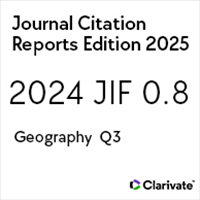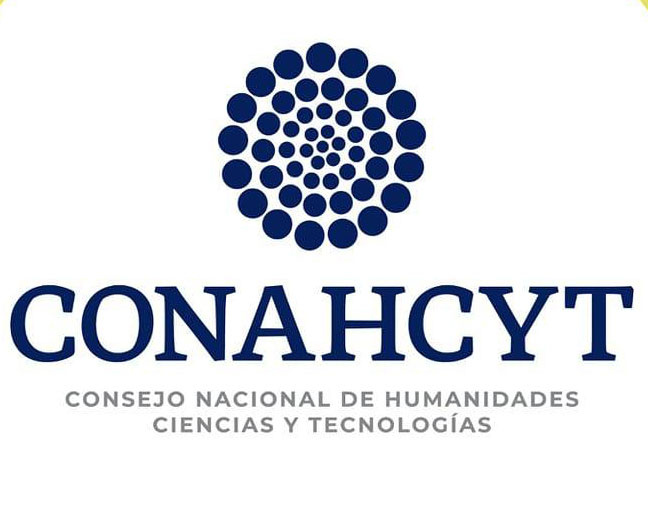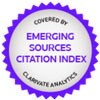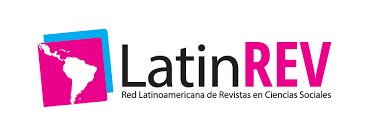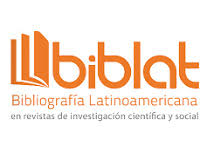Transnacionalismo y fronteras: El concepto de espacio en la frontera Estados Unidos-México
Transnationalism and borderlands: concepts of space on the US-Mexico border and beyond
https://doi.org/10.21670/ref.2001.04.a02
Palabras clave:
Identidad, estudiantes, étnicaResumen
Este documento es sobre la relación entre los estudios realizados acerca de las fronteras internacionales y aquéllos sobre el trasnacionalismo. Aunque hay similitudes obvias, la conceptualización de espacio tanto por parte de los participantes en estos estudios como por los antropólogos, crea una división en Nogales, Arizona, un poblado en la frontera entre los Estados Unidos y México, y el cual se eligió para aplicar un estudio sobre educación. Las implicaciones de esta teoría en la investigación existente y en la antropología, serán discutidas.Abstract Transnationalism and Borderlands: Concepts of Space on the US-Mexico Border and Beyond. This paper problematizes the linkage between studies of international borders and studies of transnationalism. While obvious connections exist, the conceptualization of space by both actors and anthropologists creates a division in Nogales, Arizona, a town on the US-Mexico border and the site of an applied study of education. Implications of this theory for the stated research and for anthropology will be discussed.
Citas
Aguilar, John L. (1993). “Expressive ethnicity and ethnic identity in Mexico and Mexican America”. Mexican American Identity. M. E. Bernal and P.C. Martinelli, eds. Floricanto Press: Encino. pp. 55-66.
Alvarez, Robert R. (1987). Familia: Migration and Adaptation in Baja and Alta California, 1800-1975. University of California Press: Berkeley. DOI: https://doi.org/10.1525/9780520342880
(1995). “The Mexican-US Border: The making of an anthropology of borderlands”. Annual Review of Anthropology, 24:447-470. DOI: https://doi.org/10.1146/annurev.an.24.100195.002311
Anderson, Benedict (1983). Imagined Communities. Verso: London.
Anderson, E.J. (1998). “Bilingualism the best of both worlds”. The Arizona Republic. February 20.
Anzaldúa, Gloria (1987). Borderlands/La Frontera: The New Mestiza. Aunt Lute: San Francisco.
Attinasi, John J. (1994). “Racism, language variety, and urban US minorities: Issues in bilingualism and bidialectalism”. Race. S. Gregory and R. Sanjek, eds. Rutgers University Press: New
Brunswick. pp. 319-347.
Baker, Lori, and Jennifer Barrett (1998). “Fail this test, get no State diploma: Foes say it’s biased against Hispanics”. The Arizona Republic, February 9.
Bentley, G. Carter (1987).“Ethnicity and practice”. Comparative Studies in Society and History, 29:24-55. DOI: https://doi.org/10.1017/S001041750001433X
Bonilla, Frank, Edwin Melendez, Rebecca Morales, and Maria de los Angeles Torres (1998). Borderless Borders: US Latinos, Latin Americans, and the Paradox of Interdependence. Temple University
Press: Philadelphia.
Bourdieu, Pierre (1990). The Logic of Practice. Nice, R., transl. Stanford University Press: Stanford. DOI: https://doi.org/10.1515/9781503621749
Bowles, Samuel (1972). “Unequal education and the reproduction of the social division of labor”. Schooling in a Corporate Society. M. Carnoy, ed. David McKay: New York. pp. 36-64.
Brumfiel, Elizabeth M. (1994). “Ethnic groups and political development in ancient Mexico”. Factional Competition and Political Development in the New World. E.M. Brumfiel and J.W. Fox, eds. Cambridge University Press: Cambridge, England. pp. 89-102. DOI: https://doi.org/10.1017/CBO9780511598401.009
Carnoy, Martin (1972). “Introduction”. Schooling in a Corporate Society. M. Carnoy, ed. David McKay: New York. pp. 1-17.
Cohen, Ronald (1978). “Ethnicity: Problem and focus in anthropology”. Annual Review of Anthropology, 7:379-403. DOI: https://doi.org/10.1146/annurev.an.07.100178.002115
Cummins, Jim (1997). “Minority status and schooling in Canada”. Anthropology and Education Quarterly, 28(3):411-430. DOI: https://doi.org/10.1525/aeq.1997.28.3.411
D’Amato, John (1987). “The belly of the beast: On cultural differences, Caste-like status, and the politics of schools”, Anthropology and Education Quarterly, 18(4):357-360. DOI: https://doi.org/10.1525/aeq.1987.18.4.04x0024x
Deyhle, Donna (1995). “Navajo youth and Anglo racism: Cultural integrity and resistance”. Harvard Educational Review, 65(3):23- 67. DOI: https://doi.org/10.17763/haer.65.3.156624q12053470n
Donnan, Hastings, and Thomas M. Wilson (1997). “An anthropology of Frontiers”. Border Approaches: Anthropological Perspectives on Frontiers. H. Donnan and T. M. Wilson, eds. University Press of America: Lanham. pp. 1-14.
Eldering, Lotty (1997). “Ethnic minority students in the Netherlands from a cultural-ecological perspective”. Anthropology and Education Quarterly, 28(3):330-350. DOI: https://doi.org/10.1525/aeq.1997.28.3.330
Epstein, Noel (1977). Language, Ethnicity, and the Schools: Policy Alternatives for Bilingual-Bicultural Education. Institute for Educational Leadership: George Washington University.
Erickson, Frederick (1978). The Politics of Speaking: An Approach to Evaluating Bilingual-Bicultural Schools. National Dissemination and Assessment Center, California State University, Los
Angeles: Los Angeles.
Erickson, Frederic (1987). “Transformation and school success: The politics and culture of educational achievement”. Anthropology and Education Quarterly, 18(4):335-356. DOI: https://doi.org/10.1525/aeq.1987.18.4.04x0023w
Fishman, Joshua A. (1989a). “Bias and anti-intellectualism: The frenzied fiction of ‘English only’”. Language and Ethnicity in Minority Sociolinguistic Perspective. J.A. Fishman, ed. Multilingual Matters Ltd.: Clevedon. pp. 638-654.
(1989b). “Language and ethnicity”. Language and Ethnicity in Minority Sociolinguistic Perspective. J.A. Fishman, ed. Multilingual Matters Ltd.: Clevedon. pp. 23-65.
Flores, William V., and Rina Benmayor (1997). Latino Cultural Citizenship: Claiming Identity, Space, and Rights. Beacon Press: Boston.
Flynn, Donna K. (1997). “We Are the Border: Identity, exchange, and the state along the Benin-Nigeria border”. American Ethnologist, 24(2):311-330. DOI: https://doi.org/10.1525/ae.1997.24.2.311
Francis, Norbert, and Phyllis M. Ryan (1998). “English as an international language of prestige: Conflicting cultural perspectives and shifting ethnolinguistic loyalties”. Anthropology and Education Quarterly, 29(1):25-43. DOI: https://doi.org/10.1525/aeq.1998.29.1.25
Frankenberg, Ruth (1994). “Whiteness and Americanness: Examining constructions of race, culture, and nation in white women’s life narratives”. Race. S. Gregory and R. Sanjek, eds. Rutgers University Press: New Brunswick. pp. 62-67.
Gibson, Margaret A. (1987). “Punjabi immigrants in an American high school”. Interpretive Ethnography of Education. G. Spindler and L. Spindler, eds. Lawrence Erlbaum Associates: Hillsdale,
New Jersey. pp. 281-310.
Gibson, Margaret A. (1997). “Complicating the immigrant/ involuntary minority typology”. Anthropology and Education Quarterly, 28(3):431-454. DOI: https://doi.org/10.1525/aeq.1997.28.3.431
Giddens, Anthony (1984). The Constitution of Society. University of California Press: Berkeley.
Gillborn, David (1997). “Ethnicity and educational performance in the United Kingdom: Racism, ethnicity, and variability in achievement”. Anthropology and Education Quarterly, 28(3):375-393. DOI: https://doi.org/10.1525/aeq.1997.28.3.375
Gupta, Akhil, and James Ferguson (1997a). “Beyond culture: Space, identity, and the politics of difference”. Culture, Power, and Place. A. Gupta and J. Ferguson, eds. Duke University Press: Durham. DOI: https://doi.org/10.2307/j.ctv11vc7nf.5
(1997b). Culture, Power, and Place. Duke University Press: Durham.
Hegmon, Michelle (1996). “Technology, style and social practices: Archaeological approaches”. Technological Choices and Social Boundaries in Material Culture Patterning. M. Stark, ed. Smithsonian Institution Press: Washington, D.C. pp. In Press.
Irvine, Martha (1998). “‘English for the Children’: Latino parents among foes of bilingual study”. The Arizona Republic, January 25.
Jones, Melissa L. (1998). “2 Tempe schools seek grants for duallanguage method”. The Arizona Republic, January 10.
Kearney, Michael (1995).“The local and the global: The anthropology of globalization and transnationalism”. Annual Review of Anthropology, 24:547-565. DOI: https://doi.org/10.1146/annurev.an.24.100195.002555
Kearney, Michael (1996). Reconceptualizing the Peasantry. Westview Press.
Lasken, Douglas (1998). “Californians have chance to ban bilingual teaching: Voters should end costly failure, promote English”. The Arizona Republic, January 16.
Malkki, Lisa (1997). “National geographic: The rooting of people and the territorialization of national identity among scholars and refugees”. Culture, Power, and Place. A. Gupta and J. Ferguson, eds. Duke University Press: Durham. pp. 52-74. DOI: https://doi.org/10.2307/j.ctv11vc7nf.6
Martinez, Oscar J. (1988). Troublesome Border. University of Arizona Press: Tucson.
Martinez, Oscar J. (1994). Border People: Life and Society in the USMexico Borderlands. University of Arizona Press: Tucson. DOI: https://doi.org/10.2307/j.ctv1qwwj6s
McGroarty, Mary (1991). “What do we know about effective second language teaching?” Languages in school and society. M. McGroarty and C. J. Faltis, eds. Contributions to the Sociology of Language. Mouton de Gruyter: Berlin. pp. 107-116. DOI: https://doi.org/10.1515/9783110869132.107
McNeill, Daniel, and Paul Freiberger (1993). Fuzzy Logic:The Discovery of a Revolutionary Computer Technology and How It Is Changing Our World. Simon and Schuster: New York.
Navarrette, Ruben Jr. (1998). “Bilingual education, ‘Ugly Political Mood’ clash”. The Arizona Republic, January 31.
Ogbu, John (1978). Minority Education and Caste: The American System in Cross-Cultural Perspective. Academic Press: New York.
Ogbu, John U. (1987). “Variability in minority school performance: A problem in search of an explanation”. Anthropology and Education Quarterly, 18:312-334. DOI: https://doi.org/10.1525/aeq.1987.18.4.04x0022v
Ortner, Sherry B. (1996). Class and the Jewish Question. American Anthropological Association, San Francisco.
Ortner, Sherry B. (1998). ”Identities: The hidden life of class”. Journal of Anthropological Research, 54(1):1-17. DOI: https://doi.org/10.1086/jar.54.1.3631674
Rosenfeld, Gerry (1971). “Shut Those Thick Lips!”: A Study of Slum School Failure. Holt, Rinehart, and Winston, Inc.: Prospect Heights, Illinois.
Rouse, Roger. (1991). “Mexican migration and the social space of postmodernism”. Diaspora, 1(1):8-23. DOI: https://doi.org/10.1353/dsp.1991.0011
Sacks, Karen Brodkin. (1994). “How did Jews become white folks?” Race. S. Gregory and R. Sanjek, eds. Rutgers University Press: New Brunswick: pp. 78-102.
Sahlins, Marshall (1981). Historical Metaphors and Mythical Realities: Structure in the Early History of the Sandwich Islands Kingdom. University of Michigan Press: Ann Arbor. DOI: https://doi.org/10.3998/mpub.6773
Sanjek, Roger (1994). “The enduring inequalities of race”. In Race. S. Gregory and R. Sanjek, eds. Rutgers University Press: New Brunswick. pp. 1-17.
Santo, Beverly G. (1994). “Creating boundaries, crossing borders: The lives of professional women in the Mexico-US Borderlands”. Dissertation. Union Institute.
Santos, Sheryl L. (1998). “14 going to Mexico to learn about bilingual education”. The Arizona Republic, January 9.
Scott, James C. (1990). Domination and the Arts of Resistance: Hidden Transcripts. Yale University Press: New Haven.
Shore, Chris (1994). “Community”. The Blackwell Dictionary of Twentieth-Century Social Thought. W. Outhwaite and T. Bottomore, eds. Blackwell Reference. Blackwell Publishers Ltd.: Oxford. pp. 98-99.
Steele, Mark B. (1998). “Bilingual education program an expensive failure: Viewpoint”. The Arizona Republic, January 23.
Urciuoli, Bonnie (1995). “Language and borders”. Annual Review of Anthropology, 24:525-546. DOI: https://doi.org/10.1146/annurev.an.24.100195.002521
Vélez-Ibáñez, Carlos G. (1996). Border Visions: Mexican Cultures of the Southwest United States. University of Arizona Press: Tucson. DOI: https://doi.org/10.2307/j.ctv1qwwj58
Vélez-Ibáñez, Carlos G., and James B. Greenberg (1992). “Formation and Transformation of Funds of Knowledge Among USMexican Households”. Anthropology and Education Quarterly, 23(4):313-335. DOI: https://doi.org/10.1525/aeq.1992.23.4.05x1582v
Vigil, James Diego (1997). Personas Mexicanas. Harcourt Brace and Company: Fort Worth.
Wendl, Tobias, and Michael Rosler (n.d.) “Frontiers and borderlands: The rise and relevance of an anthropological research genre”. Frontiers and Borderlands: Anthropological Perspectives. M. Rosler and T. Wendl, eds. Institute of Ethnology and African Studies, University of Munich: Munich.
White, Jonathan B. (1996). Graduation Rate Study: Class of 1994. Arizona Department of Education: Phoenix.
Williams, Brackette F. (1989). “A class act: Anthropology and the race to nation across ethnic terrain”. Annual Review of Anthropology, 18:401-444. DOI: https://doi.org/10.1146/annurev.an.18.100189.002153
Willis, Paul (1977). Learning to Labor. Columbia: New York.
Wilson, Thomas M., and Hastings Donnan (1998). Border Identities: Nation and State at International Frontiers. Cambridge University Press: Cambridge. DOI: https://doi.org/10.1017/CBO9780511607813






